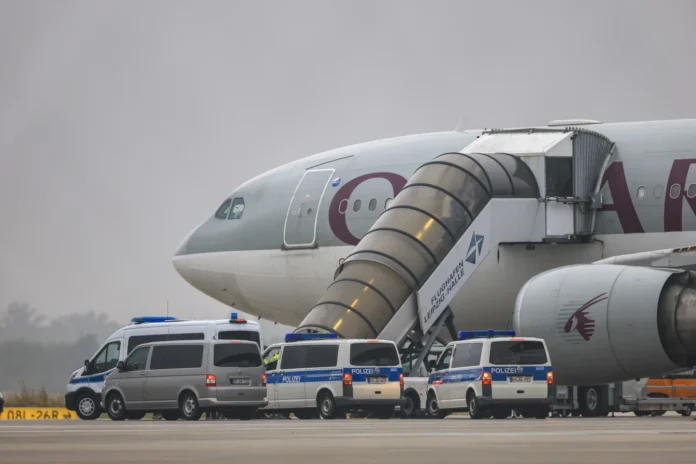Germany has deported 81 Afghan men convicted of crimes back to Taliban-controlled Afghanistan, in a move the government says underscores its shift toward a stricter immigration policy.
The deportation, carried out early Friday, was confirmed by Interior Minister Alexander Dobrindt, who emphasized that those expelled had exhausted all legal avenues to remain in the country. “There is no right of residence for serious criminals in our country,” Dobrindt said during a press conference alongside Chancellor Friedrich Merz.
All 81 men had been convicted by German courts and were subject to expulsion orders. The operation, coordinated with the help of Qatar, marks the latest step in Berlin’s hardening stance on migration since the Taliban regained control of Afghanistan in 2021. Germany had previously halted deportations and shuttered its embassy in Kabul following the regime change but resumed limited expulsions last year under former Chancellor Olaf Scholz.
Despite the government’s insistence on the legality and necessity of the move, the deportations drew immediate international criticism. The United Nations called for an “immediate halt to the forcible return of all Afghan refugees and asylum-seekers,” citing risks of persecution, detention, or torture. Amnesty International described the situation in Afghanistan as “catastrophic,” warning that abuses like extrajudicial killings and torture remain widespread.
Chancellor Merz defended the action, stating that none of the deportees had valid asylum claims. “All asylum applications were legally rejected without further legal recourse,” he said, adding that the deportations fulfilled a campaign promise.
The expulsions are part of broader reforms by the CDU/CSU-SPD coalition government to tighten immigration controls. These include stricter border checks and limitations on family reunification rights for certain categories of refugees.
Interior Minister Dobrindt is currently hosting a migration summit in southern Germany with officials from Austria, France, Denmark, Poland, the Czech Republic, and the European Commission, aimed at strengthening EU-wide migration policies. He stressed that a united European response was necessary for lasting solutions.
The immigration debate has intensified in Germany amid a surge in support for the far-right Alternative for Germany (AfD), which recently secured a record 20% in national polls. Public concern has been heightened by several violent crimes allegedly committed by asylum seekers, including Afghans.
In a further sign of the government’s toughened stance, Dobrindt revealed ongoing talks to resume deportations to Syria, which have been suspended since 2012. Syria, now under Islamist factions following the ousting of Bashar al-Assad last December, remains unstable and internationally unrecognized.
Written By Rodney Mbua



















